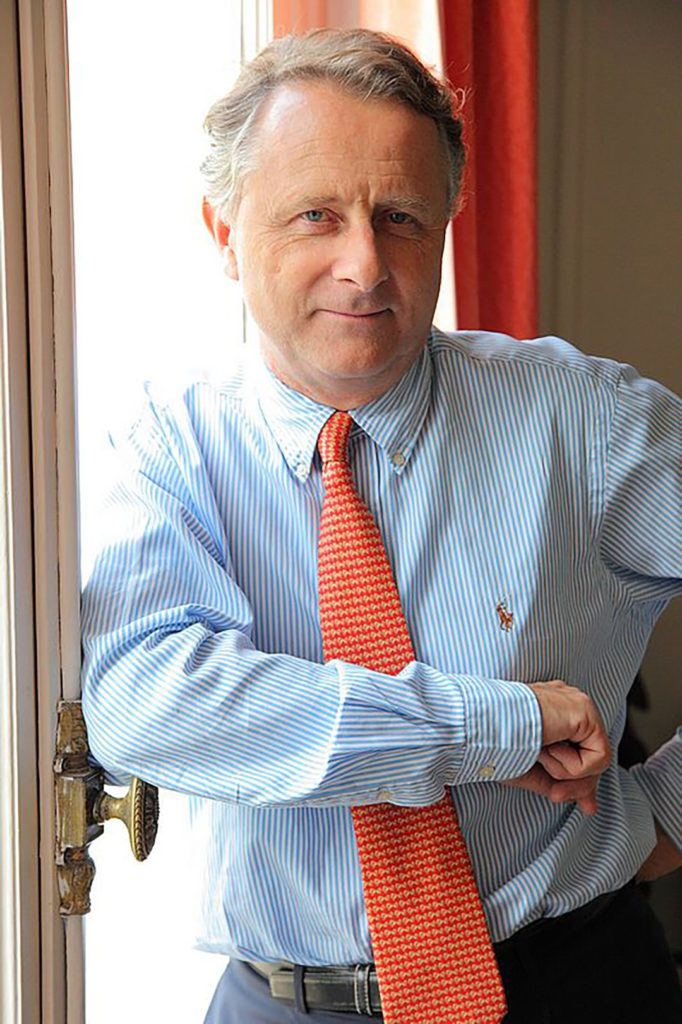EcoVadis is pleased to announce the addition of Patrick d’Humières to its Scientific Committee. The purpose of the EcoVadis Scientific Committee is to provide expert perspective on the EV Methodology and its evolution. The goal is to ensure it maximizes relevance to stakeholder demands, and remains accurate and impactful as we scale up and integrate the latest technologies and thinking. Mr. d’Humières joins a distinguished group of existing members including John Elkington, Jacqueline Aloisi, Brigitte Monsou, Luk van Wassenhove, Rosey Hurst, Andrew Winston, Uwe Schulte and Farid Yaker.
Patrick d’Humières brings a wealth of experience to the committee. Currently Director of the l’Académie Durable Internationale, expert in corporate and social relations, and specialist in CSR and sustainable development management, Patrick d’Humières has been involved in major national and international initiatives since their inception such as Global Compact, IIRC, and ISO 26000. A graduate of Sciences-Po, Mr. d’Humières was auditor of the 2009 CSR session at Harvard Executive Business School. In addition to directing “Master Class 21”, he teaches at Sciences Po and HEC, leads the Campus Durable de Casablanca and the community of responsible managers (MR21). He is also the author of multiple publications (books, reference manuals, etc.) on responsible business, the most recent “La Nature Politique de l’entrepreneur,” and remains deeply committed to supporting the Loi Pacte (a French law enabling incorporation of companies with broader social purpose), and coordinates “le Lab raison d’Etre”.
“We are thrilled to welcome Patrick’s enduring passion and deep experience with sustainability at the nexus of politics, business and activism to help EcoVadis continue to drive impact and progress on sustainability worldwide. Patrick has a unique knowledge of how sustainability practices and legislation are developing throughout Europe. His participation to the committee will be essential in helping EcoVadis drive sustainability forward,” says Sylvain Guyoton, SVP Research at EcoVadis.
We spent a few minutes with Mr. d’Humières to get his perspective on some of the vital trends shaping sustainability and supply chain:
What do you think are the most important recent trends in sustainability as it impacts businesses?
Patrick d’Humières: The engagement of businesses with sustainability has several encouraging signs: A strong drive toward decarbonation in the next twenty years is essential, and it is starting to emerge through various commitment initiatives such as science based targets, and increasing transparency and action on “scope 3” emissions in the supply chain. Second, the integration of sustainability objectives, KPIs and reporting into the board-level governance of businesses, especially the large multinationals. Furthermore, the increasing number of businesses defining their sustainability trajectory against the SDG’s is a positive trend to harmonize a common understanding of the end impact we are all seeking to drive.
There have recently been some bold commitments and initiatives on sustainability — such as recent Business Roundtable statement — as well as some strong responses. What is your perspective on this?
Such commitments can only be successful with a framework that specifies and compels the right business behaviors. This must include committing to more precise targets that have a scientific foundation. Second, such a framework must ensure “sustainable value creation” is favored, incentivized or otherwise more heavily weighted than non-sustainable models. Lastly such commitments must cover the entire value chain, from sourcing, to production, promotion, purchase, use and end-of-life.
What should be the role of Europe in advancing /moving toward a sustainable economy?
Europe has historically been a leader in prioritizing sustainable business, and must continue to push forward in several dimensions to maintain this leadership. An immediate tactical step could be to expand the requirements for non-financial transparency and reporting to encompass more companies. On a strategic level, the EU and its member states must proactively build deeper collaboration with private sector business. Corporate responsibility cannot be managed only by business, but needs a “smart mix”, whereby public authorities and business must negotiate and define common objectives of what “progress” and “success” means.
Follow Patrick on Twitter or LinkedIn
About the Author
Follow on Twitter Follow on Linkedin Visit Website More Content by EcoVadis EN























